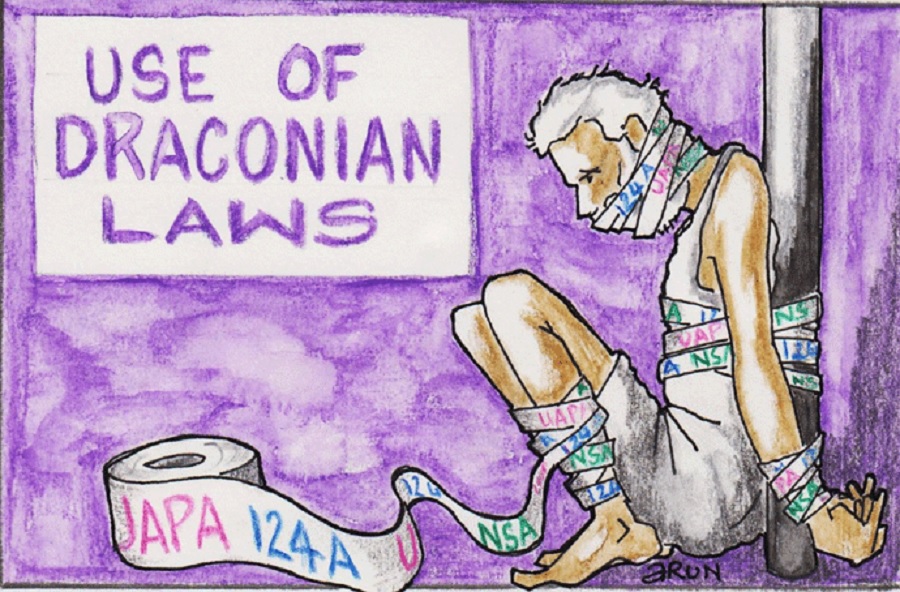- After charges of abuse and threats during the World Cup final, students in Jammu and Kashmir were charged under the Unlawful Activities (Prevention) Act (UAPA).
- Police in Jammu and Kashmir used a’softer section’ of UAPA, alleging the act of ‘terrorising’ individuals with pro-India or anti-Pakistan emotions.
What is UAPA?
- The purpose of UAPA is to provide the government the authority to investigate and prosecute terrorist actions, as well as to designate entities as “unlawful” or “terrorist” organisations or persons.
- Enactment: Introduced in 1967 in response to National Integration Council proposals to combat national division. Initially concentrated on separatist actions without mentioning terrorism.
- Terrorism and the Evolution of UAPA (2004):
- Following the removal of POTA, the UAPA was revised to cover terrorism. It defined terrorism, related sanctions, and included measures for confiscating “terrorism proceeds.”
- Amendments made after September 11, 2001: expanded the definition of terrorism, imposed stricter bail conditions, and prolonged police and judicial prison durations. It also made bail more difficult to obtain and, in some situations, transferred the burden of evidence to the accused.
- Economic Security (2012): Included economic security under terrorism, classifying crimes such as money counterfeiting as terrorist acts. It also extended the period during which an organisation might be deemed illegal.
- Individual Designation (2019): Enabled the government to designate people as terrorists, while also expanding the NIA’s authority.
The ‘Softer’ Provision: Section 13
- Section 13 of the UAPA is a “softer” provision that deals with penalties for “unlawful activities” rather than “terrorist activities.” It contains up to seven years in jail for engaging in, advocating for, abetting, or instigating illegal conduct.
- Implications: Despite being labelled “softer,” this clause nonetheless carries hefty fines and makes obtaining bail difficult.
Concerns and criticism
- Ambiguous provisions: The act’s broad and ambiguous provisions, particularly those added after 2008, allow for a broad interpretation of what constitutes terrorism or illegal conduct.
- Concerns about Human Rights: The legislation has been criticised for potentially infringing human rights, such as the right to a fair trial and the assumption of innocent.
- Use Against Dissenters: There have been reports of UAPA being used against activists, journalists, and demonstrators, raising worries about its potential use to stifle dissent.
@the end
- The Need for Scrutiny in Balancing Security and Rights: The implementation of UAPA, particularly its’softer’ elements, necessitates close analysis to ensure that it does not violate basic rights while addressing security concerns.
- Amendments debate: Current UAPA debates centre on striking a balance between national security demands and the preservation of individual rights and freedoms.
Source: https://indianexpress.com/article/explained/explained-law/kashmiri-students-uapa-draconian-over-the-years-9047478/#:~:text=In%202012%2C%20the%20UAPA%20was,currency%20as%20a%20terrorist%20act.

